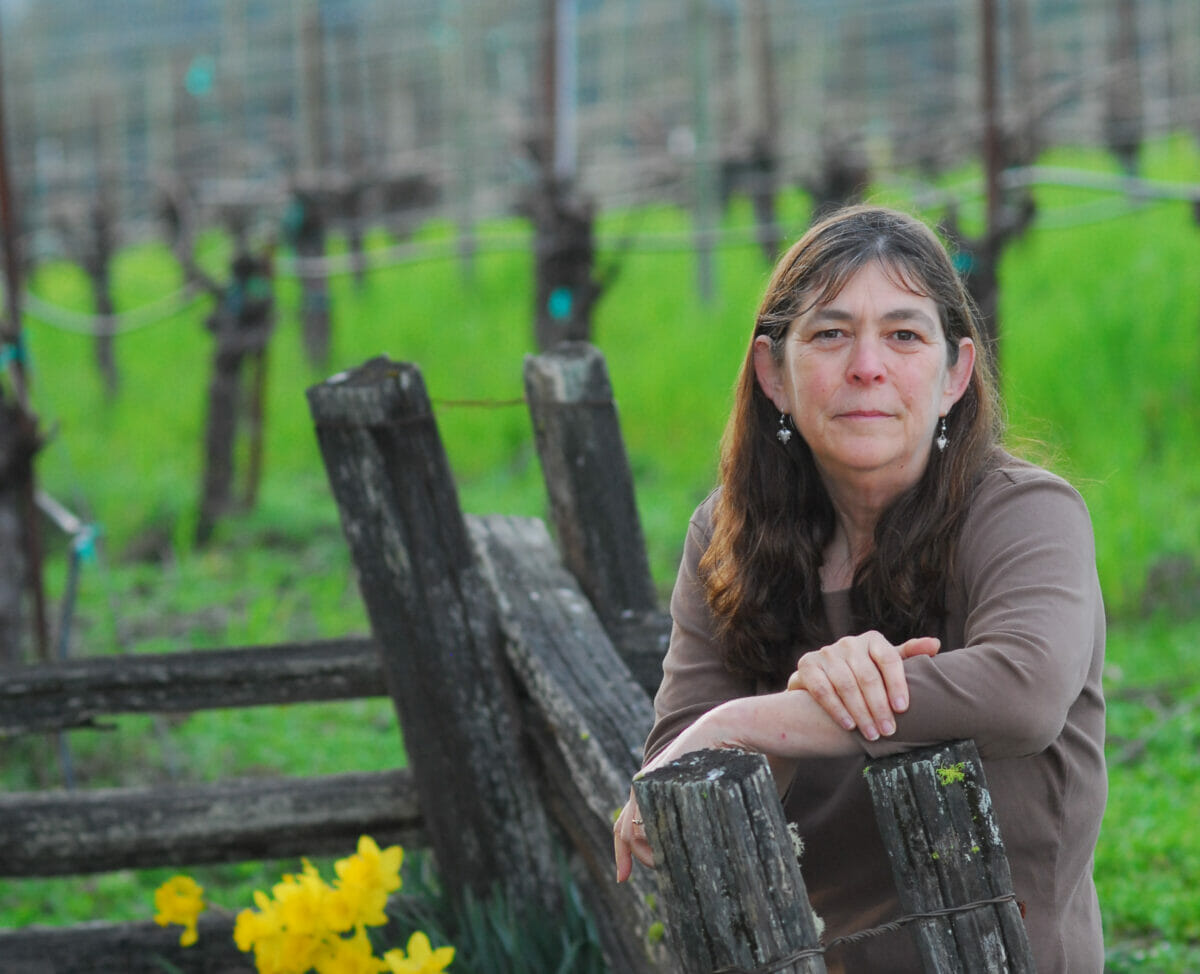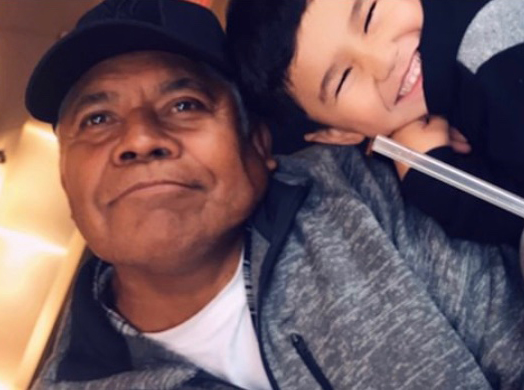Remembering the Food Workers We’ve Lost to COVID-19
Part one in a series in which we honor the food and agriculture workers who lost their lives to the virus.
Remembering the Food Workers We’ve Lost to COVID-19
Part one in a series in which we honor the food and agriculture workers who lost their lives to the virus.

Here are the stories of just a few of the food industry workers, who died from COVID-19. by qwret/Shutterstock
The COVID-19 pandemic has taken an incalculable toll on the food industry workers of America, from restaurant servers and meat plant workers, to the farmworkers who toil in fields. According to research from the University of California, San Francisco, food industry workers’ risk of dying went up by 40 percent from March to October 2020. For Latinx workers, deaths increased by 60 percent in the sector.
In a six-part series, we’ll be honoring the lives of those we have lost to COVID-19. We begin with tributes to a pioneering winemaker, farmworker and seafood store manager.

When winemaker Milla Handley was born in San Francisco in 1951, no major tech companies had yet built their headquarters there. In fact, the name “Silicon Valley” was still years away from being coined, as was the creation of the major Interstate 280 that passes through the area.
Handley grew up in Los Altos in Santa Clara County, when the agricultural town was largely planted with apricot orchards. She spent much of her childhood outdoors in the pasture land, riding horses and competing in equestrian competitions. When she chose UC Davis for college, the decision was based on her being allowed to take her horse, says her daughter, Lulu Handley.
At first, Handley chose to major in art and then tried veterinary science, but couldn’t stomach the animal dissections. She settled on enology, the study of wines, which she saw “as a way to marry art and science,” says Lulu. When she graduated in 1975, Handley became one of the program’s first female graduates.
She met her husband, Rex Scott McClellan at UC Davis, and the couple shared a dream of living a life in the country together. In 1982, the couple founded Handley Cellars in the Anderson Valley, and Handley became the first woman winemaker in America to put her name on the label. The pioneering winemaker’s career spanned nearly 40 years, during which she became a role model for other women winemakers, a champion for terroir-driven Anderson Valley wines and an advocate for organic farming. “Her second favorite place was the cellar, but her first favorite was in the vineyard,” says Lulu.
When her husband died in 2006, Handley mourned among her vines. “She spent all of her time in the vineyard he had planted up at our house,” says Lulu. “That’s where she grieved and processed all her difficult emotions.”
Last summer, Handley contracted COVID-19 and died from complications of the virus on July 25. She was 68. Handley is survived by her two daughters, Megan Handley Warren and Lulu, now owner and president of the winery.
“I would still like to have her be mentoring me,” says Lulu, who walks the very vineyards she once strolled with her late mother. “It’s a way for me to connect with her and my dad, who were both taken away too soon.”

As a supervisor for Gebbers Farm in Brewster, Washington, Francisco Montiel served as a sort of father figure to the crews of foreign guest workers with H-2A visas. He’d drive them to and from their lodging and worksites, as well as take them shopping to get groceries and other goods on weekends.
The farmworker, originally from Mexico, immigrated to the United States to work at the farm. He later became a permanent resident and brought his family to live in his adopted home. His daughter Erandy Montiel describes him as “a super hard worker.” Montiel worked for Gebbers Farms for nearly 30 years, where he picked apples, pears and cherries. When he wasn’t working, he enjoyed taking his family on fishing trips and being present to watch his grandchildren meet milestones like crawling and walking.
In late July, Montiel contracted COVID-19. After being put on a ventilator, Montiel died alone in the hospital from complications of the virus on August 1. He was 65, a few months shy of his planned retirement.
“Our future memories and trips were all taken from us,” says Erandy, the fifth youngest of Montiel’s six children.
Montiel was the third of four Gebbers workers to die from COVID-19. His family gathered in mid-August to protest working conditions for migrant workers who tested positive for the virus, calling for greater protections for farmworkers.
“It has been hard,” says Erandy. “During the winter, my dad would usually go to Mexico, where he has livestock. Me and my siblings feel like ‘oh he’s just in Mexico.’”
As a way to honor Montiel, Erandy and her mother started a retail business, and named it after his nickname: Chico’s.

When Anthony Bourdain came to visit Chicago’s Calumet Fisheries for an episode of his Travel Channel show, “No Reservations,” Carlos Rosas was there to greet him with plenty of history about the establishment. “He was the face of the store,” says owner Mark Kotlick.
A native of Chicago’s Southeast Side, Rosas started working at the now 93-year-old seafood restaurant and smokehouse as a teenager in 1997. He left to try his hand at becoming a chef, cooking on the line in Indiana riverboats and studied at the Cooking Hospitality Institute of Chicago. But when the old Calumet Fisheries store manager retired a few years later, Kotlick pleaded for him to come back. Rosas returned, where he embraced his role as the manager for more than two decades.
“He was really well liked by staff and well known by customers,” says Kotlick. “Weekends, when we smoked the fish, Carlos would go out and show them around.”
Last June, he was hospitalized with COVID-19. Rosas died six weeks later, on July 20. He was 41. Rosas is survived by his parents, Eusebio and Maria DeJesus; sisters Esperanza Frausto and Sanjuana; and brothers Martin, Jaime and Eusebio.
Kotlick announced the news on the Calumet Fisheries Facebook page shortly after: “Carlos was our ambassador. He always had a smile on his face and would greet you with a warm hello. He was a big guy with a heart to match.”
Follow us
This work is licensed under a Creative Commons Attribution-NoDerivatives 4.0 International License.
Want to republish a Modern Farmer story?
We are happy for Modern Farmer stories to be shared, and encourage you to republish our articles for your audience. When doing so, we ask that you follow these guidelines:
Please credit us and our writers
For the author byline, please use “Author Name, Modern Farmer.” At the top of our stories, if on the web, please include this text and link: “This story was originally published by Modern Farmer.”
Please make sure to include a link back to either our home page or the article URL.
At the bottom of the story, please include the following text:
“Modern Farmer is a nonprofit initiative dedicated to raising awareness and catalyzing action at the intersection of food, agriculture, and society. Read more at <link>Modern Farmer</link>.”
Use our widget
We’d like to be able to track our stories, so we ask that if you republish our content, you do so using our widget (located on the left hand side of the article). The HTML code has a built-in tracker that tells us the data and domain where the story was published, as well as view counts.
Check the image requirements
It’s your responsibility to confirm you're licensed to republish images in our articles. Some images, such as those from commercial providers, don't allow their images to be republished without permission or payment. Copyright terms are generally listed in the image caption and attribution. You are welcome to omit our images or substitute with your own. Charts and interactive graphics follow the same rules.
Don’t change too much. Or, ask us first.
Articles must be republished in their entirety. It’s okay to change references to time (“today” to “yesterday”) or location (“Iowa City, IA” to “here”). But please keep everything else the same.
If you feel strongly that a more material edit needs to be made, get in touch with us at [email protected]. We’re happy to discuss it with the original author, but we must have prior approval for changes before publication.
Special cases
Extracts. You may run the first few lines or paragraphs of the article and then say: “Read the full article at Modern Farmer” with a link back to the original article.
Quotes. You may quote authors provided you include a link back to the article URL.
Translations. These require writer approval. To inquire about translation of a Modern Farmer article, contact us at [email protected]
Signed consent / copyright release forms. These are not required, provided you are following these guidelines.
Print. Articles can be republished in print under these same rules, with the exception that you do not need to include the links.
Tag us
When sharing the story on social media, please tag us using the following: - Twitter (@ModFarm) - Facebook (@ModernFarmerMedia) - Instagram (@modfarm)
Use our content respectfully
Modern Farmer is a nonprofit and as such we share our content for free and in good faith in order to reach new audiences. Respectfully,
No selling ads against our stories. It’s okay to put our stories on pages with ads.
Don’t republish our material wholesale, or automatically; you need to select stories to be republished individually.
You have no rights to sell, license, syndicate, or otherwise represent yourself as the authorized owner of our material to any third parties. This means that you cannot actively publish or submit our work for syndication to third party platforms or apps like Apple News or Google News. We understand that publishers cannot fully control when certain third parties automatically summarize or crawl content from publishers’ own sites.
Keep in touch
We want to hear from you if you love Modern Farmer content, have a collaboration idea, or anything else to share. As a nonprofit outlet, we work in service of our community and are always open to comments, feedback, and ideas. Contact us at [email protected].by Shelby Vittek, Modern Farmer
April 26, 2021
Modern Farmer Weekly
Solutions Hub
Innovations, ideas and inspiration. Actionable solutions for a resilient food system.
ExploreExplore other topics
Share With Us
We want to hear from Modern Farmer readers who have thoughtful commentary, actionable solutions, or helpful ideas to share.
SubmitNecessary cookies are absolutely essential for the website to function properly. This category only includes cookies that ensures basic functionalities and security features of the website. These cookies do not store any personal information.
Any cookies that may not be particularly necessary for the website to function and are used specifically to collect user personal data via analytics, ads, other embedded contents are termed as non-necessary cookies.